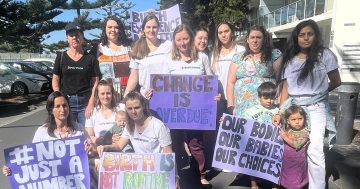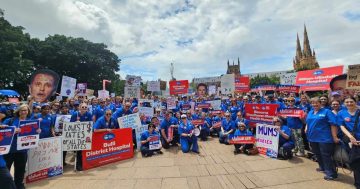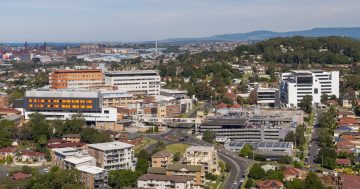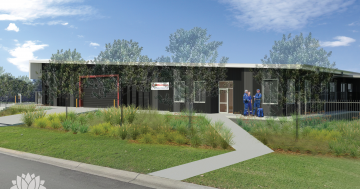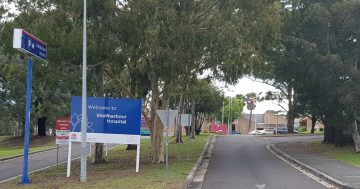
Stacey and Ralph Chater with their son, Brayden. Brayden was a keen football player who died of meningococcal B at the age of 23. Photo: Stacey Chater.
Brayden Chater was 23 when he came home from touch football and told his mum Stacey he had a bit of a fever.
The next day he went to paintball, then the pub. A couple of hours later he was dead.
“We thought he had the flu,” Stacey said.
“He did a COVID test and it was negative. He came home and had a shower and was joking around with his dad and brother.
“When I got home I went into his room and found him fitting, thrashing around and unconscious.”
Stacey called an ambulance, but when they got to the hospital doctors said it was too late. Brayden was brain dead, and there was nothing to be done.
His family couldn’t understand how the outgoing young man with a daily gym habit, who still played football for Dapto, could get so sick so quickly.
Days later they were told Brayden had died of meningococcal B.
“I couldn’t believe it – he was vaccinated at school,” Stacey said.
“They told me meningococcal B isn’t included in the vaccine they get. They do in Western Australia and Queensland, but not here.
“Most people have no idea.”
To protect other families from the anguish hers experienced, Stacey embarked on a crusade to get the vaccine included in the NSW schedule, but she says Health Minister Ryan Park isn’t interested.
“I spent two days up in Sydney and spoke to 20 MPs,” she said.
“Everyone agreed we need to do it, it’s within the budget.
“Ryan Park wasn’t available on those days so I went up again and met with him. He said he would ask the Federal Government for a 50/50 split.”
Stacey claims the Member for Keira, who she grew up across the road from, “ghosted” her.
She can’t understand why. The issue is in his portfolio, and although Dapto is just outside his electorate, he regularly references the importance of community and his local upbringing.
“Brayden’s death has connected our community so much,” Stacey said.
“So many people are waiting for Ryan to acknowledge it and do what he’s said he’s going to do.
“I just don’t want anyone else to suffer the pain that we have when there’s a vaccine out there that can save lives.
“It changes your life completely. Our whole family has changed. Everything becomes so hard.”
CEO of the Meningitis Centre Australia, Karen Quick, said NSW was lagging behind and passing the buck to the Federal Government.
Karen said the process for the Federal Government to add the vaccine to the national schedule could take years, whereas state governments had the ability to fast-track its inclusion.
Western Australia and Queensland have both recently included the Meningococcal B vaccine in their immunisation schedules.
Karen said the cost of implementing the vaccine was far less than the cost of treating the disease, let alone the potential lives it could save.
“We were told it would cost between $15 and $20 million to place it on the state immunisation plan,” she said.
“It’s a drop in the ocean – the average cost to the state of one person who contracts meningococcal B is $10 million.
“One in 10 will die, and one in four is left with a permanent disability.
“There have been 16 cases so far this year, and a spike could come at any time.
“Ryan Park is gambling with people’s lives. He’s the Health Minister and he needs to be held accountable.”
Monday 23 September would have been Brayden’s birthday.
Stacey has planned a race day at Kembla Grange on Saturday 28 September to remember his life – but what she’d like most is to see a vaccine roll-out.
“We did it last year and had about 200 people celebrate his birthday,” she said.
“I find this week leading up to it really difficult – I just don’t understand how other states can have it and we can’t.”
Region Illawarra asked Mr Park if he was taking action to have the vaccine put on the state register, and if not, why, given it is available in other states.
Mr Park’s office provided the following response: “Our priority for access to the meningococcal B vaccine remains Aboriginal and Torres Strait Islander children, as well as people with certain conditions, who can receive the vaccine for free, under the National Immunisation Program.
“These conditions include asplenia, hyposplenia, complement deficiency, or receiving treatment with eculizumab.”











